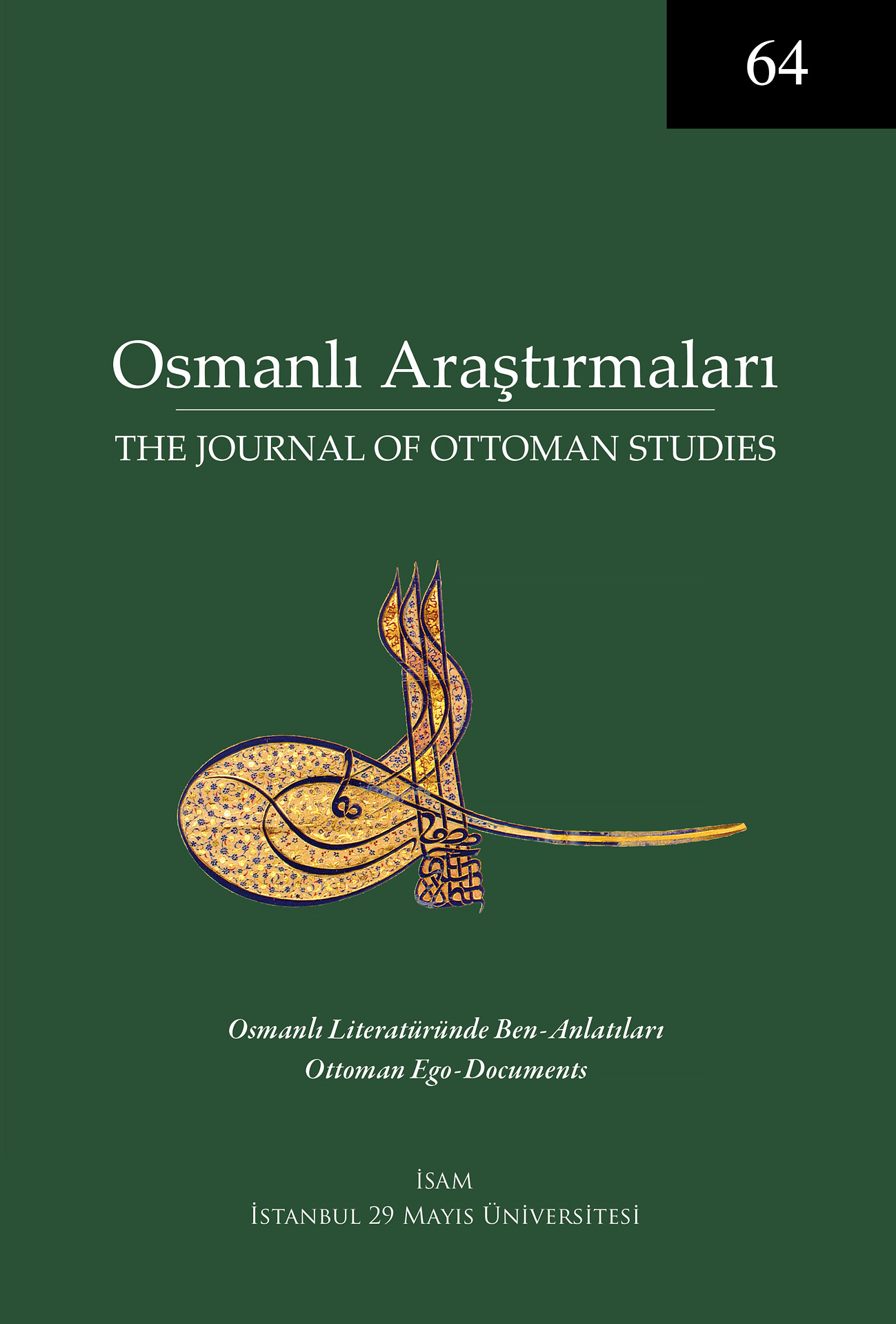Bir ‘Ben-Aynası’ Olarak Seyahatname: XVI. Yüzyılda Osmanlı Devleti’ndeki Arap Seyyahların ‘Kendilik-Bilinci’ Hakkında Bazı Gözlemler -Bedreddin el-Gazzî Örneği-
Anahtar Kelimeler:
Ben-anlatısı- Seyyah- Seyahatname- Bedreddin el-Gazzî- el-Metâli‘u’l-bedriyye fi’l-menâzili’r-RûmiyyeÖz
ㅤKişi kendi bakış açısıyla maddî ve manevî çevresinden bahsettiğinde kendine dair ipuçlarını da vermeye başlar. Bu nedenle bir kişinin, kendi-olmayanlar hakkındaki anlatıları da bir tür kendilik anlatısı olarak yorumlanabilir. Diğer taraftan tarihte askerî seferler için gözlem yapma, ilim tahsil etme, hac görevini yerine getirme, elçilik vazifesi gibi pek çok farklı sebeplerle seyahat edip gördüklerini ve yaşadıklarını yazıya geçiren seyyahların kaleme aldıkları eserler sayesinde hakkında bilgi bulunmayan bölgeleri ve bu bölgelerin halklarını, farklı açılardan tanımak mümkündür. Ayrıca bu literatür okuyucuya seyyahın gösterdiği ölçüde hem bizzat seyyahın kendini ve dünyaya bakışını hem de bölge insanının dünya anlayışını verir. Benzer durum Osmanlı döneminde Arap kökenli âlimler tarafından kaleme alınan seyahatnamelerde de müşahede edilebilir. Bu eserlerde seyyah hem kendisi, hem içinden çıktığı toplum, hem de gezip gördüğü yerler hakkında okuyucusuna bütüncül bir resim sunar. Bu çalışmada Arap toplumlarının yaşadıkları coğrafyaların Osmanlı devletinin bir parçası olmasından sonra kaleme alınan ve iki toplumun birlikte yaşama tecrübesinin gözlemlenebileceği 16. y.y. seyahatnamelerinden, Bedreddin el-Gazzî’nin (1499-1577) el-Metâli‘u’l-bedriyye fi’l-menâzili’r-Rûmiyye adlı eseri ele alınacak ve yukarıdaki ilkeler çerçevesinde tahlil edilecektir. Özellikle seyyahın satırlar arasına kendine dair serpiştirdiği bilgiler çekilip çıkarılacak; mekan, kişiler ve ilişkiler üzerinden çizdiği resmin içine gömülü kendisinin, silik bir şekilde de olsa, fotoğrafı çekilecektir. Böylece, seyahatnamelerin, makalede işaret edilen ilkeler çerçevesinde, bir tür ben-anlatısı metinleri olarak kullanılabileceği gösterilmeye çalışılacaktır.




